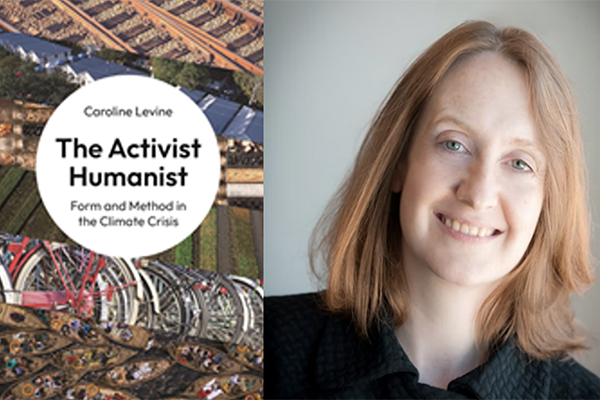
10/03/2025
Caroline Levine, the author of the 2023 book The Activist Humanist: Form and Method in the Climate Crisis, will discuss “A Tale of Three Pipelines” on Tuesday, Oct. 14, at SUNY Cortland.
Levine, the David and Kathleen Ryan Professor of the Humanities at Cornell University and a distinguished scholar in 19th century literary studies and the humanities, will begin at 5 p.m. in Brockway Hall Jacobus Lounge.
The talk, which continues “Water,” SUNY Cortland’s 2025-26 interdisciplinary series of lectures, discussions, film screenings and art exhibitions focusing on different aspects of this essential natural element, is free and open to the public.
A week before Levine’s talk, the university’s Common Read Book Club holds its first meeting of this year on Wednesday, Oct. 8. All are welcome. The gathering will take place from 7 to 8 p.m. in Corey Union, Room 301-303.
SUNY Cortland’s Cultural and Intellectual Climate Committee (CICC), an all-campus committee of faculty and staff, in partnership with the Student Government Association (SGA), encourages the campus community to explore throughout 2025-26 the possibilities of how “Water” impacts our lives.
This year, the CICC partnered once again with SGA in choosing the three common read books advancing the “Water” theme. They are The Water Dancer, a 2020 novel by Ta-Nehisi Coates; The Water Will Come: Rising Seas, Sinking Cities, and the Remaking of the Civilized World, a 2017 work of nonfiction by Jeff Goodell; and We Are Water Protectors, the 2020 Caldecott Medal award-winning children’s book by Carole Lindstrom and Michaela Goade. The CICC encourages faculty to consider including these common read texts — or excerpts from them — in their Fall 2025 and Spring 2026 classes.
Caroline Levine
Levine, who has a commitment to making her work accessible to a broader audience through various platforms, including podcasts and public presentations, has previously focused her work on the concept of “forms” as they relate to art, politics and society. In her theory of forms, she argues that they are not just artistic structures but also fundamental to social and political life, influencing how we understand and organize the world around us.
Levine’s recent work has applied these formalist methods to the climate crisis, highlighting how understanding forms can empower humanists to engage in large-scale political action and advocate for climate justice.
In her talk, Levine will explore water through the lens of form — examining routines, pathways and enclosures. The discussion will draw on her most recent work, The Activist Humanist, and a 2015 one, Forms: Whole, Rhythm, Hierarchy, Network.
The Activist Humanist connects formal analysis to climate activism and social justice. Levine’s research examines how different structures — routines, networks and even built environments — shape human experience and enable collective action. Levine’s earlier theoretical work, Forms, won the James Russell Lowell Prize from the Modern Language Association and was named one of Flavorwire’s “10 Must-Read Academic Books of 2015.”
Levine, who earned her Ph.D. in English from the Birkbeck, University of London, also wrote The Serious Pleasures of Suspense: Victorian Realism and Narrative Doubt (2003) and Provoking Democracy: Why We Need the Arts (2007).
To participate as a faculty or staff member in the CICC committee, submit an event, volunteer to support this year’s activities and programming, or for more information, visit the CICC website for details, or contact organizer Benjamin Wilson, professor in the Economics Department.